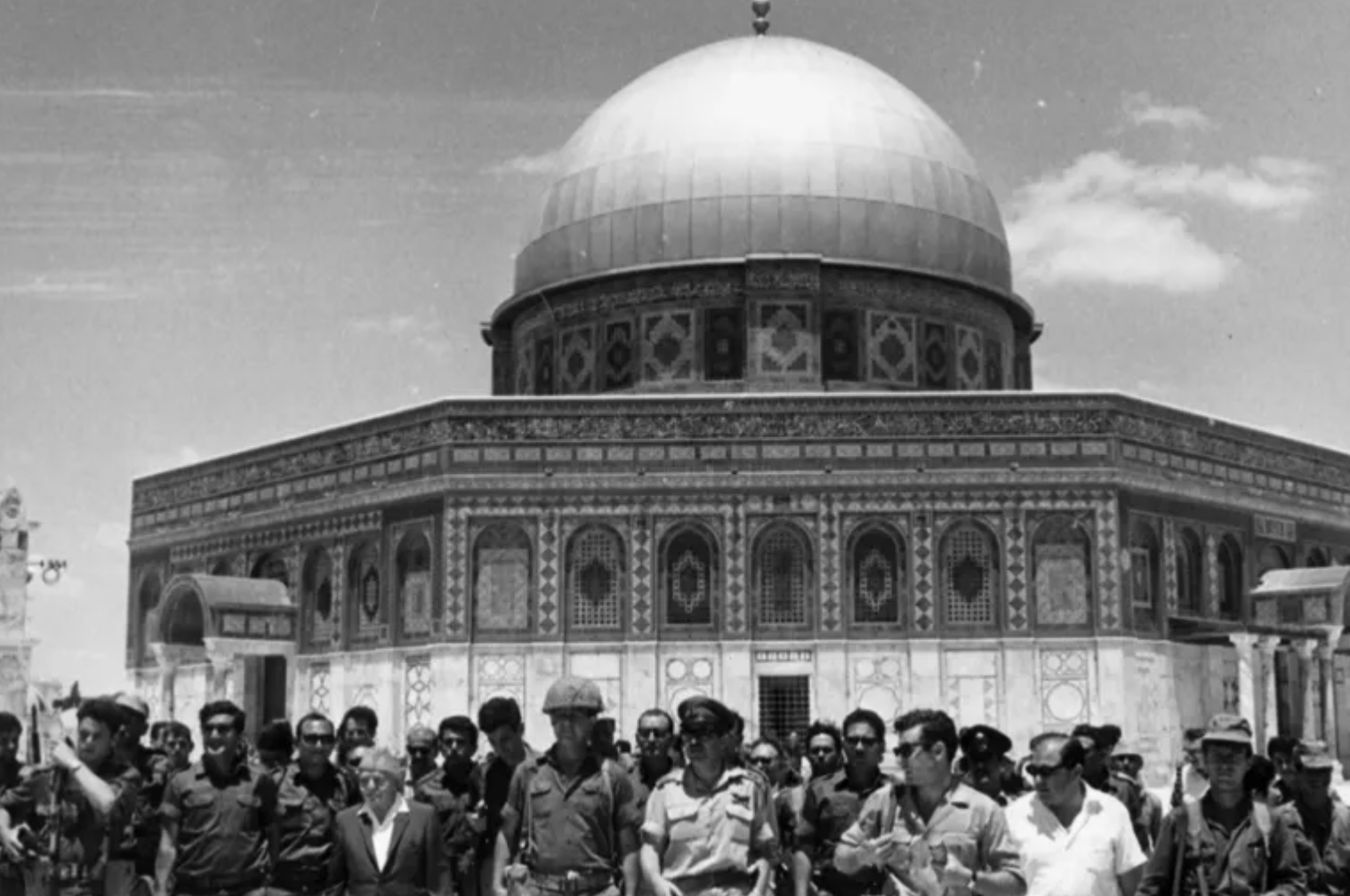By Bachar Bakour
Palestine has experienced contrasting histories under different ruling powers:
Palestine under Muslim Rule
In 15 A.H. / 636 C.E, Umar Ibn al-Khattab, the second rightly guided caliph, concluded an agreement with the Christians in Jerusalem, known later as ˜the Covenant of Umar. He granted them security for their lives, their possessions, their churches, and their crosses. “Their churches shall not be changed into dwelling places, nor destroyed. No constraint shall be put upon them in the matter of their faith. Nor shall any of them be harmed,” claims Al-TabarÄ« in TÄrÄ«kh al-Rusul wa al-MulÅ«k, published in 1977.
Similar agreements were also signed in other towns throughout Palestine. On the other hand, when Umar visited “the Church of the Resurrection¦the Patriarch bade the Caliph to offer his prayers there, but he thoughtfully refused, saying that if he were to do so, his followers might afterwards claim it as a place of Muslim worship,” mentions Thomas Arnold in The Preaching of Islam: A History of the Propagation of the Muslim Faith, published in 1913.
Interestingly, Jews, who had been for centuries banned from living in Jerusalem, were permitted to return, live and worship there.
Palestine under the Crusades
For centuries, people of the three Abrahamic faiths led a peaceful coexistence in Jerusalem before the so-called holy wars, or ˜the Crusades broke out in order to liberate the holy city from the infidels. Having entered Jerusalem in 1099, crusaders brutally slaughtered Muslims and Jews and desecrated the holy sanctuaries.
As for Christians, their positions in Jerusalem did not improve. As Roger Savory states, “An Ironical but undeniable result of the Crusades was the deterioration of the position of the Christian minorities in the Holy Land. Formerly these minorities had been accorded rights and privileges under Muslim rule, but after the establishment of the Latin Kingdom, they found themselves treated as ‘loathsome schismatics’,’ mentions John Esposito in Islam: The Straight Path, published in 1988.
When Saladin, the celebrated Muslim leader, recaptured Jerusalem in 1187, peace and security became again the dominant scene. He met arrogance with modesty, oppression with justice and cruelty with mercy.
Palestine under the Israeli Occupation
To mention a few places and dates of Israeli occupation of Palestine:
- Qazaza: 19 December 1947
- Deir Yassin: 9-10 April 1948
- Beit Daras: 21 May 1948
- Kibya: 14 October 1953
- Kafr Qasem: 29 October 1956
- The Sabra and Shatila: 15-18 September 1982
- Al-Aqsa Mosque: 8 October 1990
- The Ibrahimi Mosque: 25 February 1994
- Gaza massacre: 2 February 2008
“Amnesty International has for many years documented and condemned violations of international human rights and humanitarian law by Israel directed against the Palestinian population of the Occupied Territories,” claims Amnesty International in 2002.
For Amnesty International, “…these include unlawful killings, extra-judicial executions, torture and ill-treatment, arbitrary detention and collective punishments such as punitive closures of areas and destruction of homes. extensive and wanton destruction of property; deportations; and discriminatory treatment of Palestinians as compared to Israeli settlers. Many of these violations have been committed in a widespread and systematic manner, and in pursuit of government policy. Such violations meet the definition of crimes against humanity under international law.”
This is in brief, the miserable situation of Palestinians under Israel.
The bottom line is best expressed by the French orientalist Gostaf Lobon (d. 1931) who noted, ˜History has never known a conqueror more just and merciful than the Arabs. ***
(Dr. Bachar Bakour is an academic at the AbdulHamid AbuSulayman Kulliyyah of Islamic Revealed Knowledge and Human Sciences.)
